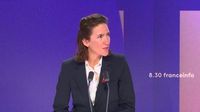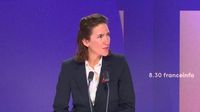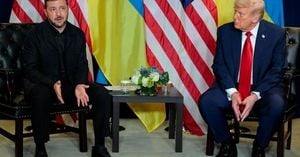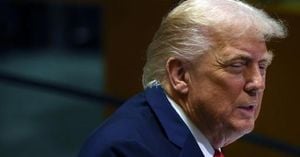Valérie Hayer, a Member of the European Parliament (MEP) from the Renew European group, expressed confidence that the European Union (EU) has the capability to influence Russian President Vladimir Putin regarding the ongoing conflict in Ukraine. Speaking on Franceinfo on March 21, 2025, just after a significant meeting of the EU's 27 member states in Brussels, Hayer stated, "We have the means to change Vladimir Putin's mind" on the Ukrainian issue in favor of peace.
The meeting in Brussels focused on reinforcing unity among EU nations and reaffirming their support for Ukraine, a country that has been facing aggression from Russia. With a summit scheduled in Paris for March 27, Hayer emphasized the importance of enhancing support for Ukraine and ensuring security guarantees to dissuade further aggression from Putin. "We must continue to accelerate our aid to Ukraine and put pressure on the U.S. administration," she remarked, stressing that providing security guarantees is a "sine qua non condition" to prevent additional attacks from Russia.
In another key point, Hayer highlighted the recent EU decision to mobilize a significant fund of 800 billion euros aimed at rearming European nations and providing support to Ukraine. This plan, approved two weeks prior, has sparked discussions about a shared European debt—a proposal put forth by French President Emmanuel Macron. While some EU member states support deeper financial collaboration, Hayer noted that not all nations agree, saying, "The debt to finance our defense efforts is good debt. It allows us to invest in our future and we must assume it." However, she expressed frustration that this substantial financial plan was not brought to a vote in the European Parliament, a decision made by European Commission President Ursula von der Leyen to avoid potential vetoes, particularly from Hungary.
Addressing Hungary's political situation, Hayer is advocating for the withdrawal of voting rights from Hungarian Prime Minister Viktor Orban. Hayer criticized Orban for consistently opposing EU resolutions supporting Ukraine while simultaneously compromising the rule of law within his country. She stated, "Removing the right to vote of an EU member is possible, but it requires the unanimity of others," reinforcing the need for cooperation among EU states in order to uphold democratic values and support Ukraine.
"Hungary and the Hungarians still have a place in Europe," Hayer assured, calling on the EU to revisit this contentious topic to maintain adherence to their shared values. She highlighted the importance of supporting democratic movements in Hungary and fostering partnerships with opposition parties that are engaged in mobilizing support against Orban's government.
The urgency around these discussions reflects the broader geopolitical context as the EU faces challenges not only from external threats but also internal disagreements that could undermine its coherence and resolve. Hayer’s firm stance conveys the essential message that unity, both in supporting Ukraine and maintaining democratic integrity within member states, is critical for the EU moving forward.
As the Paris summit approaches, all eyes will be on EU leaders, particularly Macron and Zelensky, as they discuss strategies to deliver the necessary aid to Ukraine while navigating the complex political landscape that includes dissenting voices like that of Orban. The outcomes of these discussions could have lasting implications for European security and the ongoing struggle for peace in Ukraine.
Valérie Hayer and her colleagues are not just working to secure immediate military support; they are also laying groundwork for a collective future that embraces shared democratic principles and steadfast solidarity among European nations. In a time of adversity, Hayer’s optimism about changing the course of historic conflicts and ensuring stability through unity is a rallying cry for European cooperation, highlighting the essential need for EU member states to come together in support of a brighter, more secure future for Ukraine and the region.






